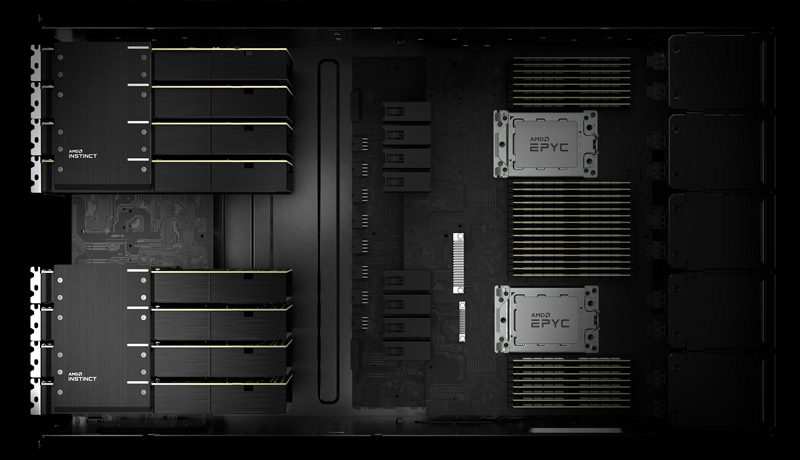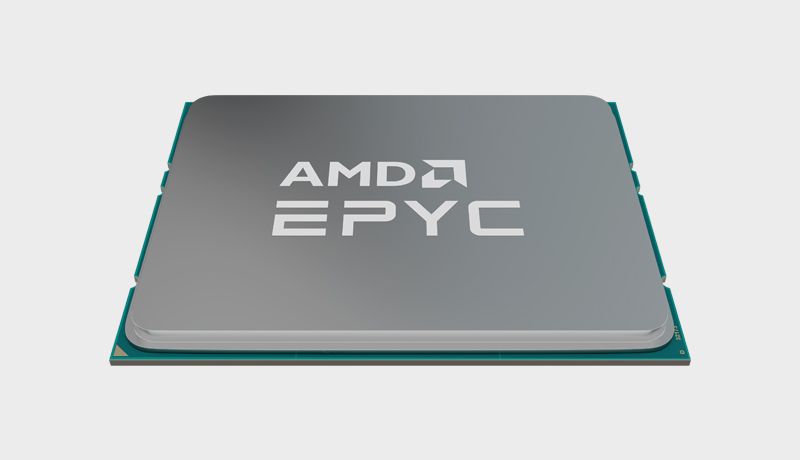
With extraordinary innovation and acceptance of AMD data center processors and accelerators at this year’s Supercomputing Conference 2021 (SC21), AMD is showing its increased presence and growing popularity in the high-performance computing (HPC) sector. Customers throughout the sector are increasingly relying on AMD EPY processors and AMD Instinct accelerators to enable cutting-edge research to address some of the world’s most pressing issues in climate, life sciences, medicine, and other fields.

“The demands of supercomputing users have increased exponentially as the world seeks to accelerate research, reducing the time to discovery of valuable information,” said Forrest Norrod, senior vice president and general manager, Data Center and Embedded Solutions Business Group, AMD.
He added, “With AMD EPYC CPUs and Instinct accelerators, we continue to evolve our product offering to push the boundaries of data center technologies enabling faster research, better outcomes and more impact on the world.”
The new Top500 ranking reflects a growing preference for AMD. AMD now powers 73 supercomputers, up from 21 in November 2020, a more than threefold growth year over year. AMD also powers four of the top ten most powerful supercomputers in the world and the most powerful supercomputer in Europe, the Middle East, and Africa (EMEA). Finally, AMD EPYC 7003 series processors, which debuted eight months ago, are used by 17 of the 75 AMD-powered supercomputers on the list, illustrating the new EPYC chips’ rapid acceptance.
At SC21, AMD was also honored in the annual HPCwire Readers’ and Editors’ Choice Awards. The company received 10 honors, including the Best Sustainability Innovation in HPC, Best HPC Server Product, and Outstanding Leadership in HPC for President and CEO Dr. Lisa Su.
AMD is working with a wide range of HPC companies to bring the performance and efficiency of AMD EPYC and AMD Instinct solutions, as well as the ROCm open ecosystem, to help researchers get more done faster. AMD is bringing the compute technology and performance needed to support current and future research around the world through high-profile deployments like the ongoing deployment of Oak Ridge National Laboratory’s “Frontier” supercomputer. The following are some of the highlights of “Frontier” and other new HPC systems in the industry:
AMD released the AMD EPYC 7003 series processor this year, the world’s fastest server processor. Since then, industry partners have received widespread acceptance who are creating breakthroughs in biology, natural catastrophe prediction, sustainable energy, semiconductors, microelectronics, and other fields.
AMD has previewed the 3rd Gen EPYC CPU with AMD 3D V-cache, which builds on the features of the EPYC 7003 series processor. AMD 3D V-Cache technology improves performance for technical computing tasks in HPC by leveraging new packaging technology that stacks the L3 cache in EPYC 7003 series CPUs. Microsoft Azure HPC virtual machines with AMD 3D V-Cache and 3rd Gen EPYC are now in Private Preview and will be available internationally soon.
AMD also revealed the AMD Instinct MI250X, the world’s fastest HPC and AI accelerator. The AMD Instinct MI200 series accelerators, which are built on the AMD CDNATM2 architecture, give up to 4.9x the peak FP64 performance of competitor data centre accelerators, which is crucial for HPC applications like weather simulation. The AMD Instinct MI200 series accelerators are also the first to contain more than 100GB of high-bandwidth memory capacity, with aggregate bandwidth of up to 3.2 terabytes per second, the industry’s best.
